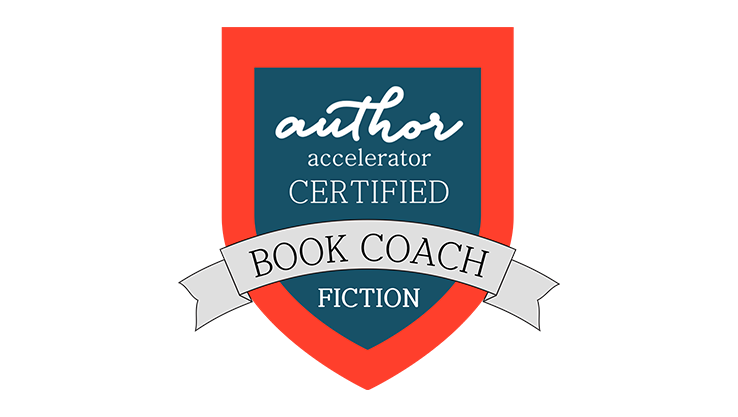Does your bucket list include
"write a book?"

You have big ideas, lots of notes, and even some pages, but you don’t know what to do next.
You’ve taken all the classes, read the craft books, and listened to tons of podcasts, but you still don’t know how to write a book.
Or maybe you’ve done none of that and want to work with a professional who has.
You wonder if you’re good enough to write a book.
And you wonder what options there are for someone like you.
Keep reading to learn More
Just imagine…
You take your big ideas, notes and pages and develop a plan to nail down what your book is all about (your book concept), the first step in writing a manuscript.
Next, you create a comprehensive outline, a roadmap that includes the elements needed to include the essentials of storytelling.
Then, write your book getting regular feedback on your pages. Week by week, month by month, and watch your manuscript grow to 90,000 words – a book in the making.
You’re doing it!

“Anyone can develop a book that can interest a reader.
It just takes time and effort to make it happen.”
What is it like to write a book with a book coach?
1) Partner: Break free from lonely self-doubt while you write your manuscript. I’ll support you, so you can focus on writing and finishing your book.
2) Teacher: I’ll show you how to write a book step-by-step, freeing you from concerns about what comes next. Regular deadlines bring your stories to life through practice and patience.
3) Mentor: No-nonsense feedback on your writing will highlight your writing strengths and areas for improvement saving you time. No more years of wondering what to do next. You’ll know the next steps needed to bring your dream to reality.

“A book coach helps writers write books readers want to read.”
– Jennie Nash, CEO of Author Accelerator
Oh, the things you do…
You’ll write a book that readers want to read without years of loneliness or trial and error.
You’ll learn that story is more than a series of plot points, and characters are a product of their backstory.
You’ll save years of wondering what to do next.
Break out that bucket list and put a check mark next to “write a book.”
Fiction
Mystery, Suspense, Thriller, Romance, and more
Memoir
Narrative memoir and stories about personal adventures
Nonfiction
Books on leadership, business, and training
How to write a book: Fiction
Stage 1 – Story Planner – Welcome to the Story Planner stage, where we’ll get down to the nitty-gritty of your goal: to write a book. This is where we strategize, brainstorm, and turn your ideas into a solid plan to help you write your story. Here’s what we’ll do:
- Zero in on your book concept: Nail down what your book is truly about.
- Discover your main characters: Dive deep into your characters’ backstories, psychology, and motivations, both for your protagonist and antagonist.
- Develop your story goal aka story problem: Align the story goal with your main characters’ motivations.
- Create meaningful stakes: Make sure the stakes in your story matter. What happens if the protagonist does not solve the story problem?
- Build your supporting cast: Flesh out allies, opponents, and false friends for a rich narrative.
- Prepare a comprehensive outline – a roadmap to follow in the next stage: This includes scene abstracts so your goal, to write a book, is realized one scene at a time.
Stage 2 – Story Draft – Now that you have a plan, it’s time to write your book. Here’s how we’ll tackle this stage:
- Write based on the book roadmap you created in the last stage. Then get those pages written!
- Adjust as needed: As your story evolves, tweak your outline to keep it on track with the book you’re writing.
- Complete the first draft: Finish your draft and review it for consistency in storyline, characters, and dialogue then proceed to the revision stage knowing you have a strong second draft.
Stage 3 – Story Revision – You’ve got a solid draft—now let’s refine it.
- Create an As-Is Outline or update the original roadmap to match the book as written.
- Analyze the outline to find plot holes and missing character development.
- Complete a round of edits to incorporate faults plus any dialogue refinement.
- Next, you’ll get feedback and make necessary revisions.
- Send your work to beta readers: Select three trusted readers for feedback. We’ll work together to select the readers who will give you honest and actionable feedback.
- Analyze feedback: We’ll go through the feedback and revise your story, shaping it into a polished third draft.
Stage 4 – Query Letter – The final stage is about getting your book into the hands of agents. Here’s what we’ll do:
- Craft a compelling query letter and a concise synopsis.
- Choose the right comp titles: Select comparable titles to pitch your book effectively.
- Make a list of agents: Identify the right agents to query based on your genre and their desired story requests.
- Prepare a pitch strategy including who to pitch to, when & how to pitch (for instance batches, agent order, timing), and rehearsal for follow-up meetings, questions, or live pitching.
Scroll to the bottom of the page for FAQs
Your Investment: $430
Per deadline
Choose deadline frequency of 2*, 3*, or monthly deadlines.
Up to 25 pages per deadline.
Feedback email on your pages with commentary & track changes
Editorial letter featuring what’s working and what needs improvement
Email support on off-weeks
1 1-hour call per deadline scheduled 5 to 7 days after submittal of work to discuss feedback and next steps
A recording of our call
*Receive a $40 discount when selecting 3-week deadlines
*Receive an $80 discount when selecting 2-week deadlines
Already have a manuscript?
Great! If you’ve already started to write a book, here’s how I can help you take it to the next level:
Start with a Manuscript Assessment
This service includes:
- Mini blueprint evaluation: A one-page summary of your book. Determine the main character’s story goal & motivation, story stakes, comp titles, and ideal reader.
- Evaluation of the first 50* pages: to include sidebar commentary & questions.
What you’ll get:
- Editorial Letter: I’ll summarize my findings in a concise letter as well as provide on-page commentary.
- Coaching Call: We’ll discuss the feedback in a call, and you’ll get clear insights into what’s working and what need improvement.
- Revision Approach: You’ll walk away with a solid plan for your revisions.
Next steps: If improvements are needed, client may opt for 1:1 coaching starting with stage 3 (revision) above. If the story only needs minor editing, the client may opt for stage 4 (querying) above.
*Full manuscript evaluations are available for former clients of either the Story Planner or the 50-page Manuscript Assessment.
Manuscript Review – First 50 Pages
$299
How to write a book: Memoir
Stage 1 – Story Planner – Welcome to the Story Planner stage, where we’ll map out your entire book before you even start writing. This is where we brainstorm, strategize, and turn your ideas into a solid plan to help you write a book that’s compelling and coherent. Here’s what we’ll cover:
- Zero in on your book concept: We’ll nail down the essence of your story with something as concise as a six-word memoir.
- Discover where your story begins and ends: Identify your story’s starting point and its conclusion, summed up in two sentences to capture the transformation.
- Clarify the main point: What’s your book’s core message? We’ll define this in a two-sentence premise.
- Prepare a blueprint: We’ll create a detailed blueprint for your memoir content.
- Outline your book: Develop a clear and structured outline to guide your writing process.
- Create a story structure: Design a story structure that fits your premise and keeps your narrative engaging.
Stage 2 – Story Draft – Now that you’ve got a solid plan, it’s time to start writing your book. In the Story Draft stage, you’ll use your outline to guide your writing process. Here’s what you’ll do:
- Write your story: Use your outline to keep you on track as you write your book.
- Submit written pages monthly: Share your progress each month for review and feedback.
Stage 3 – Book Proposal – Once your draft is shaping up, it’s time to think about getting it published. In the Book Proposal stage, we’ll create a compelling proposal to pitch your book to agents and publishers. Here’s what we’ll do:
- Develop a book proposal: Using your blueprint, we’ll craft a professional book proposal.
- Create an overview: Write a project overview, author bio, and marketing plan.
- Perform analyses: Conduct an audience analysis and compare your book to similar titles.
- Prepare the details: Put together an annotated table of contents and sample chapters.
Ready to write a book that stands out in the crowd? Turn your story into a page-turner!
Your Investment: $4300
9 total meetings, 8 deadlines (3 weeks apart)
First payment $1000, then 4 monthly installments of $850 each
Up to 25 pages per deadline.
Feedback email on your pages with commentary & track changes
Editorial letter featuring what’s working and what needs improvement
Email support on off-weeks
1 1-hour call per deadline scheduled 5 to 7 days after submittal of work to discuss feedback and next steps
A recording of our call
Let’s decide together if we’re a good fit.
How to write a book: Nonfiction
Stage 1 – Story Planner
Welcome to the Story Planner stage, where we’ll turn your ideas into a clear plan that will help you write a book. Here’s what we’ll dive into:
- What’s the main point? Pin down the core message of your book.
- Author bio: Showcase why you’re the best person to tell this story.
- Zero in on your book concept: Define the transformation or promise you’re offering your readers.
- Prepare a blueprint: Create a detailed plan for your nonfiction book’s content.
- Identify your audience: Who are you writing this book for?
- Connect with your readers: Plan how you’ll engage and resonate with your audience.
- Choose a structure: Develop a table of contents and choose the best structure for your book.
- Outline your book: Draft a comprehensive outline to guide your writing process.
Stage 2 – Story Draft
Now that we have a solid plan, it’s time to start writing your book. In the Story Draft stage, you’ll:
- Write sample chapters: Use your outline to write two sample chapters.
- Select the best chapters: Choose the two chapters that best introduce your book concept.
Stage 3 – Book Proposal
Once you have your sample chapters, it’s time to pitch your book. In the Book Proposal stage, we’ll:
- Create a book proposal: Develop a professional proposal based on your book’s blueprint.
- Overview and bio: Write a project overview and a compelling author bio.
- Marketing plan: Plan how you’ll market your book.
- Audience analysis: Perform an analysis of your target audience.
- Comp title analysis: Compare your book to similar titles in the market.
- Refine details: Prepare an annotated table of contents and refine your sample chapters.
Ready to write a book that shows your readers what’s possible?
Let’s get started and bring your nonfiction book into the world.
Your Investment: $4300
9 total meetings, 8 deadlines (3 weeks apart).
First payment $1000, then 4 monthly installments of $850 each
Up to 25 pages per deadline.
Feedback email on your pages with commentary & track changes
Editorial letter featuring what’s working and what needs improvement
Email support on off-weeks
1 1-hour call per deadline scheduled 5 to 7 days after submittal of work to discuss feedback and next steps
A recording of our call
Let’s decide together if we’re a good fit.
The results…
“Before working with Nancy, I had been afraid of plotting out a novel. Nancy broke the process down into manageable steps that were easier to understand and accomplish. She provided support throughout the process, which helped keep me motivated. Her thorough feedback was invaluable to me. It impacted not only the book I was working on, but the way I write and think about how to craft a good story. I feel much more confident about my ability to plot a book after having worked with Nancy.”
Heather Stephens (Romance Writer)
“Nancy really loves book coaching! I found this zeal to be contagious and, in my case, encouraging to someone who sometime is at the end of his creative ideas. I’ve learned from her it is sometimes wise to step aside from your novel when you find yourself stuck or lost. When you return to your story, you realize that your notions of having been impossible to continue your story are not true. The experience was fun, motivating, and even surprising; I sometimes wonder how Nancy is able to know more of a character than me, the writer.”
Kogora Hale (Short Stories)
“Working with Nancy was an eye opening experience. As a first-time author, it’s challenging to know what works, but it’s almost harder to understand what doesn’t. Nancy was open, honest, and kind. And she gave me many tools to stay on track and present my story in ways I’d never considered.”
Alex Johnson (Romance Writer)
Nancy is an Author Accelerator Certified Book Coach.
As an Author Accelerator certified book coach – fiction, my specialty is helping writers who have dreamed of being an author but have commitments that have up to this point taken precedence. As a writer who learned the craft of writing while holding a day job, I struggled for years to find the time and the right technique to plan and write the novel I was meant to write. Now that I’ve found it, I want to share it with other aspiring writers.
For more information about what it’s like to work with a book coach, see this article by Jennie Nash

Frequently Asked Questions
Of course! If you select this link I want to write a book, you will be directed to my calendar where you can schedule a 50-minute meeting with me. Don’t see a time that fits your schedule, send me an email with your availability and I’ll see what I can do to fit you in. Let’s decide together if I’m a good fit for your project.
It is generally presumed that one page of manuscript is about 250 words. Standard manuscript formatting is times new roman, 12-point font, double spaced, with 1” margins. If you are able to produce one page of manuscript in a day, that’s like saying you’re able to write 30 pages a month (with a few days off). In that case I suggest the 4-week deadline frequency. If you are on a tight deadline, I suggest a 2-week or 3-week deadline. I particularly like the 3-week option, because after the 1:1 meeting you still have two weeks to meet your next deadline.
A week before every scheduled meeting, you will need to meet a deadline for submitting your work. This can include a variety of materials, such as workbooks, manuscript pages, or a combination of both. In the three days following your submittal, I will thoroughly evaluate the work, leaving comments and drafting an editorial letter that addresses its strengths, areas that require enhancement, and recommended future steps. I will send you this letter with ample time for you to review it ahead of our scheduled meeting. This gives you an opportunity to not just read the comments but marinate in them for a few days. Then we meet at our scheduled time and talk about the feedback, brainstorm alternatives, and strategize the next deadline.
A book coach will:
- Hold you accountable to get to The End
- Develop a step-by-step guide for you to build your story idea
- Prepare developmental edits and next steps
- Champion your work
- Basic editing
- Find appropriate agents to pitch your manuscript to
- Aid in the development of a synopsis and query letter
- Prepare the writer for live pitching (e.g. at conferences, pitch wars, etc.,)
Feedback may include is mainly centered on story structure, character development, cause-and-effect narrative to begin the process of developing your story. As the manuscript develops into a story with stakes, obstacles, and a main character with agency, commentary may include dialogue review, deeper character development, subplots, specific grammar and sentence structure and more.
Not a problem. Send me email any time and ask away.
Yes, when I have interest from a group of 6 identify, I schedule a new session. If you’re interested in group classes, fill out the form on the Schedule page and check the appropriate box at the bottom of the questionnaire.
I work with adult fiction, non-fiction, and memoir writers. I do have favorites, of course. I especially like mysteries, thrillers, and suspense fiction, but have also coached romance and romantasy. I especially like brainstorming interesting meet-cute moments. Drawing from my decade in the C-Suite, my experience lends valuable insights for business and leadership book authors. And finally, I’m a big fan of uplifting memoir books that celebrate the ordinary and extraordinary moments of life.
If you have a completed draft, beginning with a manuscript assessment can help identify strengths and weaknesses in your current draft. I will ask you to complete a one-page blueprint of your manuscript (based on Author Accelerator’s mini-blueprint for a book) which will answer various questions about genre, comps, your ideal readers, a short main character assessment, and a 200 word plot paragraph. While I assess the initial 50 pages and your blueprint, you’ll develop an As-is outline – an outline of your manuscript. Once the assessment is complete, I’ll provide feedback along with a discussion of the outline. Manipulating and outline is far more manageable than identifying specific issues in all 400 pages. Then, with your new outline in hand, you can start making edits to improve your story.
I make no guarantee regarding agenting or publishing your work. Publishing has changed over the years and getting a publishing deal is tough. Agents and publishers are looking for well written, polished manuscripts. And we all get one shot to impress them. A book coach can help you put your best foot forward so your one shot is not a practice shot.
No, that’s what a ghostwriter does. I currently do not offer ghostwriting services.
Yes. Your work. Your ideas. All yours.
We’ll start with your concept. Develop a compelling character (protagonist). Determine his/her moral dilemma (weakness) and desire (need), which include development of some pivotal backstory – basically the answer to why your protagonist is the way they are. We will do the same for other characters who are pivotal to the story. From there you will prepare an outline, weaving the plot and the character arc together. Once your outline is complete…on to writing.
